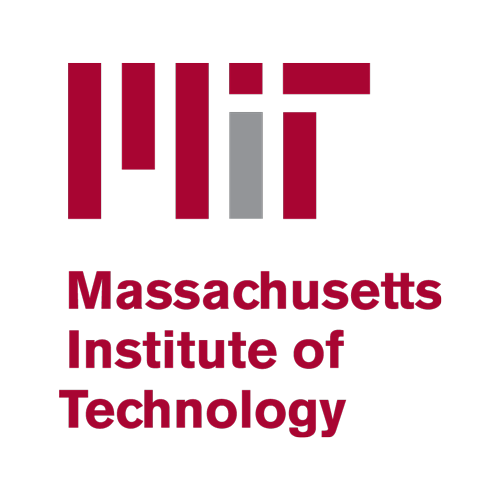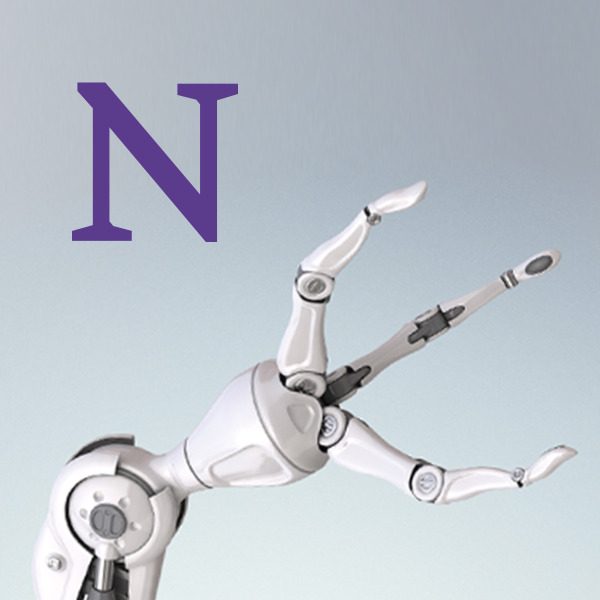Academic History
Spring 2025
AE 445 - Spacecraft Detail Design
Principles of spacecraft detail and subsystem design, analysis, modeling, manufacture, and test are covered and incorporated into projects to give actual experience in the detail design and integration of space-related subsystems and systems. Integration of multiple subsystems into a single functional model is a key component of the course.
EP 497 - Space Systems Design II
Continuation of EP 496, completion of the senior design project, involving solution of a complex problem relevant to engineering physics that incorporates appropriate industry standards and presentation of results in a seminar format.
EP 448 - Control System Theory and Engineering Applications
Physics-based modeling, analysis, and design of linear and nonlinear control systems using time and frequency domain techniques. System linearization and Lyapunov's first theorem, closed-loop (feedback) control system performance analysis and stability, stability margins, Laplace transforms, state space models, PID controllers, linear quadratic regulators (LQR), linear quadratic gaussian (LQG) control, pole placement methods, root locus, linear observer design, and control design and numerical simulation. Introduction to Lyapunov's second theorem and overview of nonlinear control methods including adaptive control, neural network-based control, and sliding mode control.
AE 442 - Experimental Dynamics and Control
Linear Control. Open loop and closed loop system feedback analysis. Modeling, linearization and parameter system identification and validation of dynamical systems. State space system representation, system block diagrams, feedback and transfer functions. Control design based on transient and steady state specifications. Concepts of stability and controllability. Stability criteria. Control design and analysis of dynamical systems in time and frequency domains.
AE 443 - Experimental Dynamics and Control Laboratory
Laboratory for the dynamics and control of systems. Dynamical systems testing through instrumentation, amplifiers, analog-to-digital converters, Boolean algebra, logic gates and microprocessors, data acquisition and data analysis. Modeling of dynamics for flexible link systems, rotational systems including electrical servos and transformers; experimental determination of the system natural frequency. Control design and implementation based on time domain transient and steady state requirements; pole placement and state feedback control design and implementation. Full-state-feedback vs. partial-state-feedback analysis. Finding first- and second-order system parameters. System response analysis to various input types. Sensor bias removal techniques and actuator saturation. Processing and analysis of experimental and simulated data; report writing and data presentation.
ME 424 - Automation and Rapid Prototyping
Participants will study rapid prototyping and automated fabrication including the generation of suitable CAD models, current rapid prototyping fabrication technologies, and automation. The rapid prototyping processes will be illustrated by the design and fabrication of parts by the students.
AE 323 - Spacecraft Systems
Fundamentals of design and implementation of spacecraft systems and systems engineering principles. Power, telemetry, communications, thermal control, attitude determination and control, mechanisms, and navigation. Life support systems, integration, testing, and operations are introduced.
Fall 2024
ME 428 - Design for Manufacturing and Assembly
Manufacturing processes and life cycle design for the aerospace industry. Tolerances and materials properties. Design for manufacturing and associated costs for various manufacturing processes (machining, casting, molding, stamping, forming, forging, and extrusion) with aviation-related case studies. Design for product assembly and total assembly cost with case studies. Selection of materials and processes using design manufacturing guidelines, standards, and tolerance fittings. Simulations using computer graphics software. Design for manufacturing course project.
EP 496 - Space Systems Design I
Undergraduate research, supervised by physics or engineering faculty, leading to the writing of a technical design report involving application of appropriate industry standards to a complex science and/or engineering problem in an area of current interest in engineering physics
AE 427 - Spacecraft Preliminary Design
Spacecraft preliminary design principles are developed to meet mission objectives. A complete space-related system is designed, resulting in a design package consisting of specifications, calculations, CAD drawings, weight and various subsystem budgets, and a series of trade studies, reviews and design reports.
EP 410 - Space Physics
This course is a study of the origin, evolution, and structure of the neutral and ionized terrestrial atmosphere, the effect of sun's electromagnetic radiation on Earth's ozone shield, photo-ionization and thermal structure of the neutral atmosphere as well as on the ionosphere and magnetosphere, solar disturbances and their effects on satellite orbit decay and on long distance communication. It also includes studies of composition, thermodynamics, physical processes of the near-Earth space environment, rocket and satellite monitoring, remote sensing, numerical and instrument design considerations.
AE 416 - Aerospace Structures and Instrumentation
Lecture-based course to support the Structures and Instrumentation Laboratory. Course emphasizes aerospace vehicle testing through instrumentation, data acquisition, and data reduction. Test plans and design are utilized.
AE 417 - Aerospace Structures and Instrumentation Laboratory
Principles of modern aerospace vehicle testing and instrumentation. Basic electrical measurements and devices such as strain gages, piezoelectric sensors, and thermocouples. Topics could include measurement of fluid pressure and flow; temperature; thermal and transport properties; strain; motion; vibration; force and torque. Experimental static and dynamic analysis of structures. Processing and analyzing experimental data; report writing and data presentation.
ME 404 - Mechatronics
Integration of mechanical, electrical, and computer systems. Application and interfacing of microcontrollers, sensors, actuators, and other electrical components commonly used in smart electromechanical devices.
Spring 2024
AE 316HON - Aerospace Engineering Materials
Structure, properties, and processing of engineering materials. Crystal structure, defects, imperfections, and strengthening mechanisms. Mechanical properties, fracture mechanics, fatigue and creep, and material failures. Phase diagrams and transformations. Degradation of materials. Characteristics of ferrous and nonferrous metals and alloys, ceramics, polymers, and composite materials. Emphasis on materials and process used in the aerospace industry.
AE 418HON - Aerospace Structures II
Deflection and stress analysis of determinate and indeterminate aerospace structures under axial, bending, and torsion loads. Topics covered include work and energy principles, non-idealized structures, idealized semi-monocoque structures, some discussion of plate buckling, finite element modeling and computer-aided analysis.
AE 434 - Spacecraft Control
A review of spacecraft equations of motion and state variable representation of the equations of motion. Automatic control theory, the classical approach as well as the modern control approach. Attitude control with thrusters, attitude control with reaction wheels, and attitude stabilization with spin. Attitude control during thrust maneuvers. Control of translational motion.
EP 440 - Engineering Electricity and Magnetism
This course is a study of the solutions of electrostatics problems using Poisson's Equation and Laplace's Equation, electrostatic energy, electric current, magnetic field, electromagnetic induction, Maxwell's equations (reflection, refraction, waveguides, antenna radiation).
EGR 305 - 3D-CADD and Engineering Documentation
Application and use of high-end computer-assisted drafting, design, and analysis tool (CATIA) to engineering challenges. Applications of CATIA workbenches: the product specification tree, knowledge-ware, parametric design, part and assembly design, modification, document release and control, final drawings, and changes.
EP 200 - Machine Shop Laboratory
Introduction to machine shop techniques including familiarization with riveting, sheet metal forming, welding, and machining.
Spring 2023
AE 314 - Experimental Aerodynamics
Explores wind tunnel design, instrumentation, scaling effects, data acquisition, and data reduction as well as good experimental practices.
AE 315 - Experimental Aerodynamics Lab
Sequence of experiments that demonstrate basic aerodynamic theory while developing skills in the use of classic and modern experimental apparatus, the practice of good experimental technique, and the writing of experimental reports along with the requirements of designing an experiment. Specific experiments depend on the apparatus availability and instructor preference.
AE 414 - Space Propulsion
Introduction to the basic principles of liquid and solid propulsion systems. Flight performance parameters are presented for single and multi-stage vehicles. The thermo-chemistry of the combustion process will also be discussed. Performance enhancements of nuclear rockets and electric propulsion will be covered.
AE 426 - Spacecraft Attitude Dynamics
Fundamentals of spacecraft attitude dynamics. Three dimensional rigid-body kinematics. Stability and dynamics of symmetric and tri-inertial bodies. Attitude, nutation and spin control maneuvers for spin-stabilized spacecraft. Effects of energy dissipation. Momentum-biased spacecraft dynamics. Stability, modeling and simulation of spin-stabilized and momentum-biased spacecraft. Elements of three-axis stabilized spacecraft. Effects of gravity gradient, solar radiation pressure, atmospheric drag and magnetic torque on spacecraft attitude.
EP 340 - Introduction to Space Systems Design
Introduction to space mission analysis and design process, mission characterization, evaluation and requirements definitions, including numerical modeling and simulation of engineering systems, the finite element method and the finite difference method. Application of industry standards relevant to solving complex science and engineering problems.
EP 391 - Microcomputers & Electronic Instrumentation
This course will provide students with a background in electronics as it applies to the design of circuits of measuring instruments and to interface sensors and computers. The program of study will concentrate on following the form of the electrical signal from light, pressure, temperature and other sensors as it proceeds through signal conditioning circuits and into the microcomputer for further processing.
EP 391L - Microcomputers & Electronic Instrumentation Laboratory
Two 90 minute laboratory sessions per week, with experiments complementing the lectures of EP 391 on a weekly basis. The labs will introduce the students to software modeling of circuits; cover analog devices such as diodes, transistors, op-amps, motors; digital devices such as a microcontroller, multiplexers, communication radios; and also practice device level C-programming concepts.
EP 394 - Space Systems Engineering
Development of the fundamental principles used in the engineering and design of space systems. Several major subsystems including power, telemetry and command, communications, thermal control and guidance, navigation, and control subsystems are covered. Topics on space environmental control and life support systems, space system integration and testing, and space system operations are also discussed.
Fall 2022
AE 307HON - Incompressible Aerodynamics
Study of conservation equations and fundamental fluid dynamic principles, elementary solutions of inviscid incompressible flows, methods of predicting flows around airfoils and wings including thin airfoil theory, panel methods, lifting line theory, viscous flows and turbulence, Navier-Stokes equations, laminar and turbulent boundary layers.
AE 308 - Compressible Aerodynamics
Review of thermodynamics, compressibility, governing equations for compressible flow, normal shock waves, one-dimensional flow with heat addition and friction. Raleigh Fanno curves, oblique shock waves and expansion waves, compressible flow through nozzles, diffusers and wind tunnels, subsonic and supersonic flow around airfoils, including linear theories, elements of hypersonic flow, conical flow, method of characteristics, and unsteady one-dimensional flow.
AE 318 - Aerospace Structures I
Methods of stress analysis of statically determinate lightweight structural systems. Applications include space structures and semimonocoque structures. Inertia force and load factor computation. Thermal Stresses. Three-dimensional beam bending. Shear flow. Materials considerations. Finite element modeling and computer-aided analysis.
EP 320 - Electro-Optical Engineering
Geometrical optics of mirrors, thin and thick lenses, prisms, and systems. Ray tracing with optical CAD. Fiber optics applications. Physical optics including interference, diffraction, and polarization. Phaser methods. Engineering considerations in choice of different types of detectors. Space systems applications. Image processing. Emphasis on design.
ES 309 - Fluid Dynamics
This course explores the physical characteristics of the fluid state, fluid statistics, kinematics of fluid motion, flow of an incompressible ideal fluid, the impulse-momentum principles, similitude and dimensional analysis and fluid measurements.
PS 305 - Modern Physics Laboratory
This course is the study of experiments in atomic and nuclear physics, including spectroscopy and interferometry, nuclear particle analysis, x-ray analysis and laser applications.
Spring 2022
AE 201 - Aerospace Flight Vehicles
This course is a study of the history of atmospheric and exo-atmospheric flight, aircraft and spacecraft anatomy, fundamental aerodynamic properties, hydrostatics, properties of the atmosphere, fluid conservation equations, concepts of internal and external fluid flows, dimensional analysis, airfoil shapes, introduction to viscous flows, aerodynamic forces and moments, experimental results of airfoil and wing behavior, vehicle propulsion including reciprocating engines and gas turbines, airplane and rocket vehicle performance, summary of supersonic and hypersonic flight.
ES 202 - Solid Mechanics
This course is a study of the concepts of stress and strain and their tensor properties. Elastic stress-strain relations. Analysis of stress and deformation in members subject to axial, torsional, bending, and combined loading. Column stability.
ES 204 - Dynamics
A vector treatment of the kinematics and kinetics of particles and rigid bodies. Acceleration, work, energy, power, impulse, and momentum.
PS 228L - Physics III Laboratory
One three-hour laboratory session per week with experiments chosen primarily from thermodynamics, electricity and magnetism, and geometric optics.
PS 290 - Physics Laboratory Practicum
Required, noncredit course. Requires the student to direct the operation of a basic laboratory for one semester. Includes laboratory preparation, laboratory discussion, and grading of laboratory reports.
PS 303 - Modern Physics
This is an introductory course in non-classical (modern) physics; it introduces students to the modern concepts in physics. Topics discussed include scattering of electromagnetic radiation; special relativity; wave-particle duality; the uncertainty principle and quantum theory of atomic structure; x-rays; lasers; and nuclear reactions.
PS 320 - Classical Mechanics
This course is a study of the fundamentals of mechanics, oscillatory motion, systems of particles, varying mass, motion under central forces, motion in three dimensions, gyroscopic motion, generalized coordinates, normal coordinates, Lagrangian and Hamiltonian formulations. Students will write some simple computer programs.
Fall 2021
EE 327 - Electrical Engineering Fundamentals
This course is a study of circuit theory and variables. Analysis of electrical circuits using Ohm's and Kirchhoff's laws. Nodal and mesh analysis. Principles of superposition and source transformation. Thevenin and Norton equivalent circuits. Wheatstone bridge. Voltage-current relationship for passive elements. First order transient analysis. Phasors and steady-state AC analysis. Filter concepts.
EE 328 - Electrical Engineering Fundamentals Laboratory
Laboratory experiments and techniques in electrical engineering.
EP 393 - Spaceflight Dynamics
This course is a study of the basic topics in analytical dynamics, two body orbits and the initial value problem, the two body orbital boundary value problem, Earth coverage and space mission geometry, non-Keplerian effects, orbital maneuvers and rendezvous, interplanetary transfer.
ES 201 - Statics
This course is a study of vector analysis of forces and moments in 2-D and 3-D systems; center of mass, distributed forces, equilibrium of particles and rigid bodies; trusses and frames, internal forces, shear and moment distribution in beams, centroids and area moments of inertia.
ES 305 - Thermodynamics
This course is a study of concepts of the heat and work and their transformation as governed by the first and second laws of thermodynamics in both closed and open systems. Evaluating properties of pure substances. Ideal gas behavior and relationships. Efficiencies and diagrams of thermodynamic cycles. Entropy and its relation to the second law.
MA 442 - Mathematical Methods for Engineering and Physics II
This course is a study of linear differential equations with variable coefficients; The derivation, characteristics, and solutions of partial differential equations; Fourier series, Fourier transform, Laplace transform, and Green's function; applications in science and engineering.
Spring 2021
COM 221 - Technical Report Writing
This course introduces students to the preparation of formal and informal technical reports, abstracts, proposals, instructions, professional correspondence and other forms of technical communication. Major emphasis is placed on the long technical report and the acquisition of advanced writing skills.
CS 223 - Scientific Programming in C
This is a course in C programming for scientists and engineers. Using a problem-solving approach for developing algorithms, the algorithms are implemented in C and include the following topics: data types and related operations, input/output, control structures, functions, arrays, files, and strings.
EGR 101HON - Introduction to Engineering - Honors
A project-based, design experience for engineering majors. Introduces the interdisciplinary aspects of engineering through team projects.
MA 441 - Mathematical Methods for Engineering and Physics I
This course is a study of Line and surface integrals; vector fields with the study of Green, Gauss, and Stokes Theorems; applications of vector field theory; Fourier series.
PS 199 - Special Topics in Physical Sciences
Individual independent or directed study of topics in the fields of the physical sciences.
PS 226 - Physics I
This is a calculus based introductory course in mechanics that explores units and order of magnitude analysis, vectors, kinematics, Newton's Law of Motion, momentum methods, work-energy principles, rotational kinematics, torque, gravitation and orbital motion.
PS 226L - Physics I Laboratory
One three-hour laboratory session per week, with experiments chosen primarily from mechanics.
Fall 2020
EGR 115 - Introduction to Computing for Engineers
This is an introductory course in computer programming for scientists and engineers. This course introduces students to aspects of algorithm design and software development including specification of the problem, design of a solution, implementation of code, and testing. This course applies a problem-solving approach to developing algorithms. Algorithms are implemented and utilize the following topics: data types and related operations; looping; decision; input/output; functions; arrays; and files.
EGR 120HON - Graphical Communications
Students will use free-hand pencil sketching and CAD as tools for graphical communication of engineering designs. Standard form for design graphics and view layout, orthographic projection, section and auxiliary views, dimensioning, tolerancing, introduction to shop processes.
HON 150 - Honors Seminar I
This course is open only to freshmen enrolled in the Honors program, and will satisfy the lower-level Humanities requirement in general education. An interdisciplinary Humanities course, it focuses on aesthetic, philosophical, and historical aspects of a subject, making use of text materials from several disciplines and varied media. The course also emphasizes student participation in a seminar discussion format and requires that students develop their research, critical thinking, and oral and written communication abilities. Requirements will include (but will not be limited to) text and Web-based original research, written essays, oral presentations, and participation in group discussion. Topics may vary according to instructor.
MA 345HON - Differential Equations & Matrix Methods
This course is a study of the treatment of ordinary differential equations to include principle types of first and second order equations; methods of substitution on simple higher order equations; linear equations and systems of linear equations with constant coefficients; methods of undetermined coefficients and variation of parameters; Laplace transforms; series solutions; linear algebra and matrix methods of solutions; applications to physics and engineering.
Independent Study
Below, you'll find a selection of educational resources that I've found quite valuable. I wholeheartedly recommend exploring these if you share an interest in the topics.





